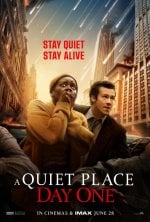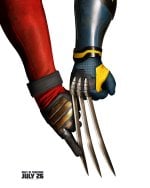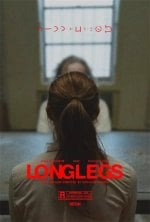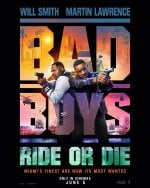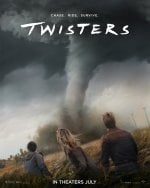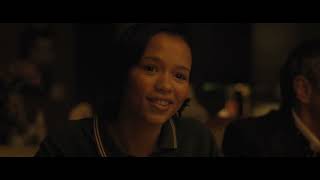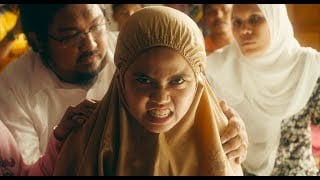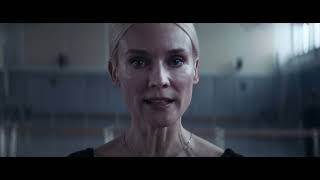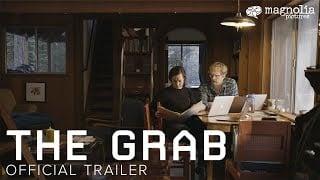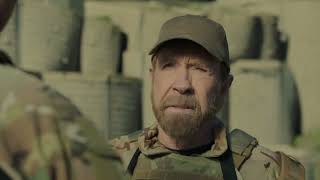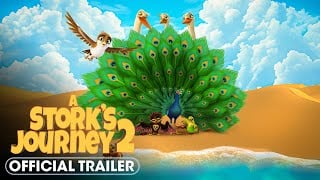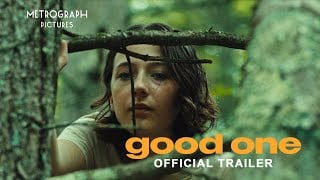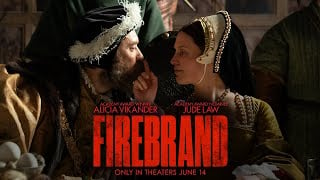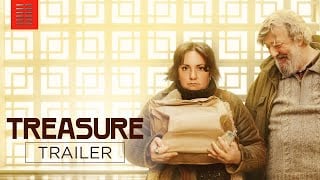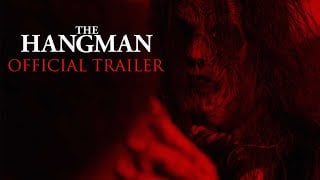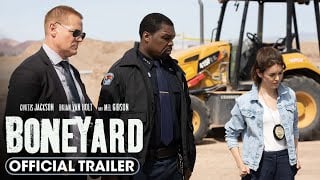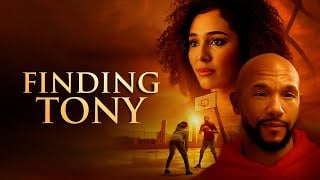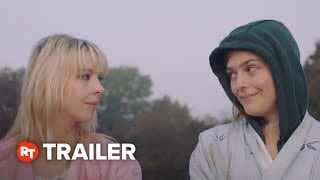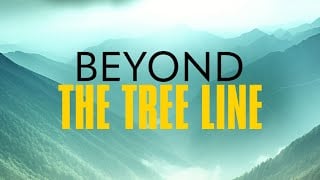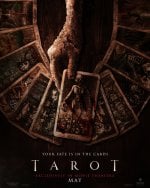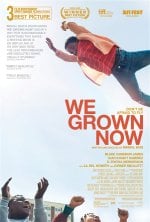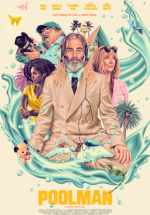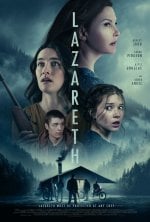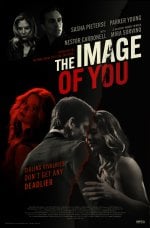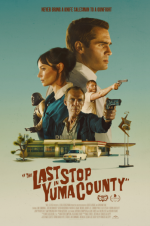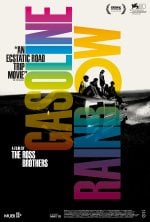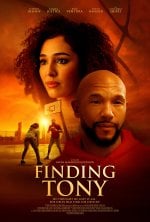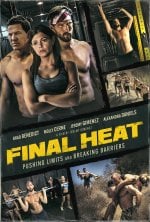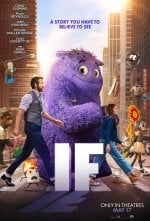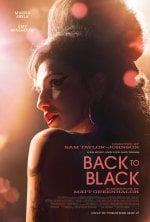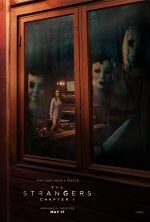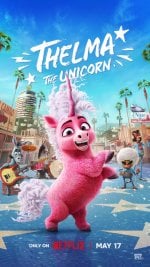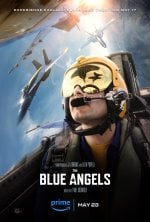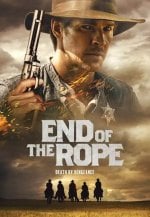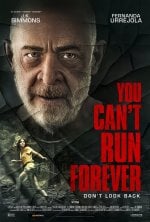Latest Movie Trailers & Videos
All The Fires
Official Trailer
Mother Couch
Official Trailer
Tiger Stripes
Official Trailer
The American
Official Trailer
Gaga Chromatica Ball
Official Trailer
Latency
Official Trailer
The Grab
Official Trailer
Agent Recon
Official Trailer
A Stork’s Journey 2
Official Trailer
Good One
Official Trailer
Fancy Dance
Official Trailer
Firebrand
Official Trailer
Fresh Kills
Official Trailer
Treasure
Official Trailer
The Hangman
Official Trailer
Summer Solstice
Official Trailer
The Commandant's Shadow
Official Trailer
Megalopolis
First Look Clip
Boneyard
Official Trailer
Ghostlight
Official Trailer
Finding Tony
Official Trailer
Tell That to the Winter Sea
Official Trailer
Beyond The Tree Line
Official Trailer
Rhapsody In Justice
Official Trailer
New Movies Coming Out This Week
Kingdom of the Planet o...
Nationwide
Tarot
Nationwide
We Grown Now
Nationwide
Not Another Church Movi...
Limited
Force of Nature: The Dr...
Limited
Poolman
Limited
Lazareth
Limited
The Image of You
Limited
The Last Stop in Yuma C...
Limited
Gasoline Rainbow
Limited
Hazard
Limited
Aisha
Limited
Living with Leopards
Netflix
Finding Tony
VOD / Digital
Final Heat
VOD / Digital
Beyond The Tree Line
VOD / Digital
IF
Nationwide
Back to Black
Nationwide
The Strangers: Chapter ...
Nationwide
Thelma The Unicorn
Netflix
The Blue Angels
Limited
Babes
Limited
End Of The Rope
VOD / Digital
You Can't Run Forever
Limited
Waterfront Film Festival 2004: 'Middle Coast' Builds Indie Cred
originally posted June 21, 2004
Now in its sixth year of staying ahead of the cinematic curve, Saugatuck, Michigan's Waterfront Film Festival defied ungenial weather to exceed even its own attendance projections with consistently long lines for buzzworthy productions from Napoleon Dynamite and Born Into Brothels to The Story of the Weeping Camel and Harold and Kumar Go to White Castle.
Festival Co-Founder Hopwood DePree declares Saugatuck "the perfect place for a film festival," and the nine thousand tickets sold from June 10-13 (in a town of just over a thousand permanent residents) might back such an assertion. "We wanted something different and artsy," says DePree-a description fitting for the town itself, noted for its many galleries, specialty shops, and gourmet restaurants, not to mention sitting on the Lake Michigan coastline-and though he feared the persistent drizzle might abrogate the traditional outdoor opening night screening, a venue change to the expansive Yacht Services boat shed still drew thousands for the restored print of Clara Bow's celebrated 1927 comedy It.
The "different and artsy" approach was made manifest in Kalamazoo quartet Blue Dahlia's atypical live musical accompaniment for It, which more closely resembled a Cocteau Twins concert than anything you might expect from cinema's silent era. While the uninitiated might intially object to the lack of a clear connection between the events on the screen and Blue Dahlia's ethereal aural tapestries (sometimes even with lyrics, and not always in English), the radical juxtaposition of old and new slowly sutures itself into an amalgam of sight-and-sound as wholly singular as Bow's own immortal performance. The Alloy Orchestra it's not, but when Waterfront's mission statement explicitly celebrates the uncompromised visions of independent filmmaking, this challenge to conventional notions of film scoring was appropriately iconoclastic.
Waterfront's programming the rest of the weekend proved equally pioneering, as the daily schedule featured more than one eventual Sundance darling. Foremost among them, Shane Carruth's Primer, which took this year's Dramatic Grand Jury Prize. Such accolades can become a double-edged sword, however, as writer/producer/director Carruth spoke prior to the screening of the burden of increased expectation for a seventy-eight-minute film funded by his modest personal savings and mostly dubbed after his sound-mike man "wasn't near as close as [he] needed to be." What he didn't mention was the audience's subsequent challenge with a story that dives right into the thick of some extracurricular technology start-up enterprise with four twentysomethings still in their day-job corporate apparel filling mass mailing packets at the dinner table and bandying about dense technospeak in the garage while fiddling with sawed-off mufflers and dismantled microwave ovens and argon tanks. We seem to know only a little bit less than these guys, though, as their cobbled-together research might be so groundbreaking they themselves barely understand it ("Should we be wearing goggles?"). Carruth boldly plays with ellipses and subtle repetitions and risks drowning us in the bewilderingly dense constant conversation between himself and David Sullivan until it slowly emerges the massive implications of their invention.
Like how Contact explored how the beginnings of extra-terrestrial contact might actually play out, Primer straddles the line where history crosses into science fiction, and cogently illustrates just how the human brain tries to wrap itself around seemingly impossible accomplishments. The personalities of the two central players only gradually individuate themselves as well, and their capacity for treachery registers when each must consider not only what their current secret desires are, but what betrayals they're might be capable of in the days to come, as they discover they may have already "reverse engineered" present events from the future. Shot in Super 16 with strikingly bland interiors and "purposeful" color gradations, Primer undoubtedly warrants multiple viewings when its chronological end may have happened somewhere in the middle, and Carruth utters lines like "Are you hungry? I haven't eaten since later this afternoon" whose paradoxical content only hits you minutes later. If this is the cream of the latest indie crop, then no one need fear the dumbing-down of the filmmaking scene any time soon-Primer fearlessly warps past our expectations to carve itself a place among the truly maverick productions of recent years.
Open Water distinguished itself as the first film sold at Sundance this year, a Blair Witch-meets-Jaws tale whose behind-the-scenes tales prove as compelling as the events on screen. Shot for under $300K with actors Blanchard Ryan and Daniel Travis treading water for eight to ten hours a day off the Bahamas with real sharks swarming around them, Water brings to life the alarmingly-true story of two scuba divers whose tour boat mistakenly leaves them behind. (If you think it isn't prophetic when Travis' character playfully sticks his head inside a plastic shark's mouth in an early dryland scene, then Finding Nemo may be more your thing.) Writer/director/editor Chris Kentis successfully ratchets up the tension as our stranded duo bobs about, endlessly encircled by the sea's most fearsome predators even during a lightning storm ("What kind are they?" "Big ones."). Shots of the sky and horizon are frankly dazzling, but this hardly concerns you if chunks of your legs are being bitten off, and the underwater camerawork starts resembling ominous shark-point-of-view shots we'd wish upon noone. While Travis reported at the screening that "there were no fake sharks," and whose on-camera antics were easily elicited ("bait is a great motivator"), the restrained ending remains within the bounds of plausibility but denies us any catharsis - again, no Hollywood selling-out here.
Writer/director Brian Dannelly had a different agenda with Saved! - "to put the 'fun' back in 'fundamentalist'"-and at the same time he was introducing his film to Waterfront attendees it was being rolled out to a nationwide release. (He'd just flown to New York City and back that morning to appear on "Good Morning America," now that Jerry Falwell's called it "the most hateful movie to come out of Hollywood in years." You can't buy that kind of publicity!) Set in a bland Baltimore suburb where American Eagle Christian High School students hang out at the Emmanuel Shooting Range ("An Eye For an Eye") and the principal yells "Let's get our Christ on!" at assemblies, Saved! fills its Election-ish world with kids who submit to Scripturally-backed peer pressure and have a very low tolerance for moral gray areas. Jena Malone finds herself cast out of the Christian in-crowd when she tries curing her boyfriend of his nascent gay feelings by sacrificing her virginity to him-and gets pregnant in the process, a fall from grace where only the school's other black sheep (a smirking Macaulay Culkin in a wheelchair and a Jewish Eva Amurri, both providing a satisfyingly dark streak of humor) extend their friendship. The film does betray a few weaknesses to John Hughes conventions as the final confrontations (at the prom, of course) inevitably show the kids as more wise than the adults who claim to know what's right in God's eyes, but the canny portrayal of its righteous subculture and its steady stream of punchlines should make for a satisfying box office.
The only film that failed to live up to expectations was Takeshi Kitano's Zatoichi, which cleaned up at Japan's Academy Awards and took Audience Awards at Venice and Toronto, but whose all-CGI blood and inscrutable multiple subplots only proved befuddling. Kitano's masseur-slash-samurai happens upon a village caught in the middle of inter-gang warfare, and when not wearing strange outfits at casinos or walking repeatedly straight into the camera the residents dance in an impossibly anachronistic style like they're in the case of "Stomp." All we know about the title character is he's blonde, he's blind, and he's unstoppable, and the resulting yawnfest offers no emotional pulls or noteworthy combat choreography; the film was introduced by a Waterfront representative as "already a classic," by which one hopes he meant a classic example of independent filmmaking gone off the tracks. (At least the zombielicious Dead & Breakfast, the fest's Saturday midnight movie with the tint & hue knobs turned to eleven, keeps the gore non-digital and the laughs wholly deliberate: "I can't kill anyone, I'm a vegan!")
Strong as the fiction features were, newly-resurgent documentary filmmaking put on at least as stirring a show at Waterfront, many serving up unique doses of Americana that Hollywood scriptwriters probably couldn't even make up. While we'll leave to the sociologists to explain why bowling can't shake an unglamorous cultural stigma even while attracting more recreational devotees than any other sport, A League of Ordinary Gentlemen makes for gripping reportage as the 2002-3 season of the resuscitated Professional Bowlers Association bestows divergent fortunes upon new and old faces of its pantheon. Producer Bill Bryan aptly describes League's milieu as "mullets and dot-com money," with personalities ranging from abrasive CEO and "ultimate alpha male" Steve Miller (who insists "the players don't matter") and fallen former champ Wayne Webb (with some sense of entitlement, as one who helped the game during its golden age) to the unflappable and somewhat drippy Walter Ray Williams, Jr. (who prefers to "let my bowling ball do my talking") and his bad-boy archrival (and tour draw) Pete Webber, whose final showdown with Williams is appropriately accompanied by cowboy-quick-draw-duel music. The hook balls flirting with the gutter, seven-ten splits reeking of doom, and Odor-Eaters™ sponsorships enliven an already-hypnotic storyline with plenty of Michigan locations, and League suggests there may be hope for the PBA yet.
If League serves as an inadvertent promo for a sport struggling with shame issues, American Beer touts a cottage industry whose hipness quotient needs no assistance, but whose struggles for market share endure. The numbers suggest vibrant commerce - our quintet of brewphiles visit 38 microbreweries in 40 days from New England to California, with names like Climax, McNeill's, Ale of the Living Dead, Victory, and Yuenglen-but these all represent only three percent of all the beer sold in the United States annually. There are 1400 breweries in the US today, but only three beers (Bud, Miller, and Coors) have 79% of all drinkers in their pocket-and none of the smaller fry expect to retroactively convert them. The CEOs and Brewmasters and owners (some former cops, reporters, chiropractors, others self-confessed "unemployable") instead speak to their passion for their craft, by day explaining the science behind their operations, and by night drinking our filmmakers under the table at their respective brewpubs. (Kalamazoo's Bell's brewery owner Larry Bell quotes Baudelaire in his lurid Hawaiian shirt: "It's time to get drunk!") In the end, Beer is as much about Paul, Jeremy, Jon, Rob, and Richard's road-trip shenanigans as it is the distinctive characters of all these various beverages, and the only universal from start to finish is the absence of an effective hangover remedy.
The human element comes to the forefront in Sunset Story, Laura Gabbert's inordinately moving nonfiction film of two "retired radicals" who moved into Los Angeles' Sunset Hall, a retirement community for political progressives, within weeks of each other. Irja, 85, and Lucille, 95, both claim they saved each other's lives upon discovering their instant compatibility, and despite their impaired mobility they share a feistiness and candidness that distinguishes them from may of their less-lucid neighbors. Forget the glut of forgettable teenpics; as Irja and Lucille attend demonstrations, post "FREE MUMIA" signs on the balcony, and force the Hall's dishwashers to register to vote, it's clear that our nation's elderly represent an untapped source of fascinating material. Even as the pair relish each other's company, the rigors of human mortality make inroads on their health, and Lucille balks when the waitress at their regular diner insists she'll never falter; despite their continued participation in social events and the Free Thinkers Club, they make it clear that no one wants to live forever. When Irja starts to fear for the lapsed-Jewish Lucille's spiritual prospects, and Lucille says "I'm only here because of you" at a modest celebration of a Jewish holiday, you wonder if she doesn't also mean she's only sticking around among the living to keep Irja happy.
Adding to the fun at Waterfront are the short films that always precede the feature presentations, and the more one sees the ingenuity and wit that goes into productions lasting even just a few minutes, the more one wishes there were more venues for the regular screening of such gems. From Tango Octogenario, where a wizened couple with many years under their belts bicker until they hit the dance floor and the love becomes palpable, to Chasing Jason, where a veteran of the singles scene reflects on her now-defunct romantic liaison with Friday the Thirteenth's legendary slasher, there's a cinematic warmth present that is perhaps best captured in brevity. The Ticket features Scott Bakula on an ambiguous end of a con job, The Old Man and The Studio hypothesizes Ernest Hemingway's apocryphal and disheartening experience with the Hollywood studios, and
Scrapyard of Hope's disturbing "Knight Rider" episode envisions a relationship gone sour between Michael Knight and his sentient car, K.I.T.T. The best of the fest, however, was Bob Odenkirk's Frank International Film Festival, where the makers of last year's Waterfront entry Melvin Goes To Dinner screen their creation at a film festival consisting of just one person. Lovingly mocking the fragile egos of the independent filmmaker and featuring more than one surprising indie-scenester cameo, Frank compresses entire emotional arcs into eight minutes and shows to what lengths a guy will go to get a laurel wreath on their film's poster. Why are we subjected to all these banal commercials at the multiplex when a reel of shorts could redeem even the most disappointing Hollywood blockbuster in advance?
For those not satiated by even these offerings, there's even more to a Waterfront weekend, including exclusively short film showcases, a series of films by Michigan-based creators, a student-film program, and seminars on topics like pitching and acting and marketing featuring the very filmmakers whose works are on display at the festival. (A screenplay competition is in the works as well, with the winner getting a staged reading at next year's festival.) For a 501(c)3 non-profit entirely run by volunteers, this is a surprisingly smooth operation whose success DePree attributes both to "the passion behind it" and "the people in the entertainment industry that are behind the festival." Waterfront's organizers boast substantial connections to New York and Los Angeles that clearly scoops the major markets, and the town's quaint dimensions ensure "it can only get so big," says DePree. Michigan's "Middle Coast" would seem to have some surprising cinematic cachet every summer-all the Great Lake State needed, per the festival's own short-film promos, was to "Just Add Waterfront."
Festival Co-Founder Hopwood DePree declares Saugatuck "the perfect place for a film festival," and the nine thousand tickets sold from June 10-13 (in a town of just over a thousand permanent residents) might back such an assertion. "We wanted something different and artsy," says DePree-a description fitting for the town itself, noted for its many galleries, specialty shops, and gourmet restaurants, not to mention sitting on the Lake Michigan coastline-and though he feared the persistent drizzle might abrogate the traditional outdoor opening night screening, a venue change to the expansive Yacht Services boat shed still drew thousands for the restored print of Clara Bow's celebrated 1927 comedy It.
The "different and artsy" approach was made manifest in Kalamazoo quartet Blue Dahlia's atypical live musical accompaniment for It, which more closely resembled a Cocteau Twins concert than anything you might expect from cinema's silent era. While the uninitiated might intially object to the lack of a clear connection between the events on the screen and Blue Dahlia's ethereal aural tapestries (sometimes even with lyrics, and not always in English), the radical juxtaposition of old and new slowly sutures itself into an amalgam of sight-and-sound as wholly singular as Bow's own immortal performance. The Alloy Orchestra it's not, but when Waterfront's mission statement explicitly celebrates the uncompromised visions of independent filmmaking, this challenge to conventional notions of film scoring was appropriately iconoclastic.
Waterfront's programming the rest of the weekend proved equally pioneering, as the daily schedule featured more than one eventual Sundance darling. Foremost among them, Shane Carruth's Primer, which took this year's Dramatic Grand Jury Prize. Such accolades can become a double-edged sword, however, as writer/producer/director Carruth spoke prior to the screening of the burden of increased expectation for a seventy-eight-minute film funded by his modest personal savings and mostly dubbed after his sound-mike man "wasn't near as close as [he] needed to be." What he didn't mention was the audience's subsequent challenge with a story that dives right into the thick of some extracurricular technology start-up enterprise with four twentysomethings still in their day-job corporate apparel filling mass mailing packets at the dinner table and bandying about dense technospeak in the garage while fiddling with sawed-off mufflers and dismantled microwave ovens and argon tanks. We seem to know only a little bit less than these guys, though, as their cobbled-together research might be so groundbreaking they themselves barely understand it ("Should we be wearing goggles?"). Carruth boldly plays with ellipses and subtle repetitions and risks drowning us in the bewilderingly dense constant conversation between himself and David Sullivan until it slowly emerges the massive implications of their invention.
Like how Contact explored how the beginnings of extra-terrestrial contact might actually play out, Primer straddles the line where history crosses into science fiction, and cogently illustrates just how the human brain tries to wrap itself around seemingly impossible accomplishments. The personalities of the two central players only gradually individuate themselves as well, and their capacity for treachery registers when each must consider not only what their current secret desires are, but what betrayals they're might be capable of in the days to come, as they discover they may have already "reverse engineered" present events from the future. Shot in Super 16 with strikingly bland interiors and "purposeful" color gradations, Primer undoubtedly warrants multiple viewings when its chronological end may have happened somewhere in the middle, and Carruth utters lines like "Are you hungry? I haven't eaten since later this afternoon" whose paradoxical content only hits you minutes later. If this is the cream of the latest indie crop, then no one need fear the dumbing-down of the filmmaking scene any time soon-Primer fearlessly warps past our expectations to carve itself a place among the truly maverick productions of recent years.
Open Water distinguished itself as the first film sold at Sundance this year, a Blair Witch-meets-Jaws tale whose behind-the-scenes tales prove as compelling as the events on screen. Shot for under $300K with actors Blanchard Ryan and Daniel Travis treading water for eight to ten hours a day off the Bahamas with real sharks swarming around them, Water brings to life the alarmingly-true story of two scuba divers whose tour boat mistakenly leaves them behind. (If you think it isn't prophetic when Travis' character playfully sticks his head inside a plastic shark's mouth in an early dryland scene, then Finding Nemo may be more your thing.) Writer/director/editor Chris Kentis successfully ratchets up the tension as our stranded duo bobs about, endlessly encircled by the sea's most fearsome predators even during a lightning storm ("What kind are they?" "Big ones."). Shots of the sky and horizon are frankly dazzling, but this hardly concerns you if chunks of your legs are being bitten off, and the underwater camerawork starts resembling ominous shark-point-of-view shots we'd wish upon noone. While Travis reported at the screening that "there were no fake sharks," and whose on-camera antics were easily elicited ("bait is a great motivator"), the restrained ending remains within the bounds of plausibility but denies us any catharsis - again, no Hollywood selling-out here.
Writer/director Brian Dannelly had a different agenda with Saved! - "to put the 'fun' back in 'fundamentalist'"-and at the same time he was introducing his film to Waterfront attendees it was being rolled out to a nationwide release. (He'd just flown to New York City and back that morning to appear on "Good Morning America," now that Jerry Falwell's called it "the most hateful movie to come out of Hollywood in years." You can't buy that kind of publicity!) Set in a bland Baltimore suburb where American Eagle Christian High School students hang out at the Emmanuel Shooting Range ("An Eye For an Eye") and the principal yells "Let's get our Christ on!" at assemblies, Saved! fills its Election-ish world with kids who submit to Scripturally-backed peer pressure and have a very low tolerance for moral gray areas. Jena Malone finds herself cast out of the Christian in-crowd when she tries curing her boyfriend of his nascent gay feelings by sacrificing her virginity to him-and gets pregnant in the process, a fall from grace where only the school's other black sheep (a smirking Macaulay Culkin in a wheelchair and a Jewish Eva Amurri, both providing a satisfyingly dark streak of humor) extend their friendship. The film does betray a few weaknesses to John Hughes conventions as the final confrontations (at the prom, of course) inevitably show the kids as more wise than the adults who claim to know what's right in God's eyes, but the canny portrayal of its righteous subculture and its steady stream of punchlines should make for a satisfying box office.
The only film that failed to live up to expectations was Takeshi Kitano's Zatoichi, which cleaned up at Japan's Academy Awards and took Audience Awards at Venice and Toronto, but whose all-CGI blood and inscrutable multiple subplots only proved befuddling. Kitano's masseur-slash-samurai happens upon a village caught in the middle of inter-gang warfare, and when not wearing strange outfits at casinos or walking repeatedly straight into the camera the residents dance in an impossibly anachronistic style like they're in the case of "Stomp." All we know about the title character is he's blonde, he's blind, and he's unstoppable, and the resulting yawnfest offers no emotional pulls or noteworthy combat choreography; the film was introduced by a Waterfront representative as "already a classic," by which one hopes he meant a classic example of independent filmmaking gone off the tracks. (At least the zombielicious Dead & Breakfast, the fest's Saturday midnight movie with the tint & hue knobs turned to eleven, keeps the gore non-digital and the laughs wholly deliberate: "I can't kill anyone, I'm a vegan!")
Strong as the fiction features were, newly-resurgent documentary filmmaking put on at least as stirring a show at Waterfront, many serving up unique doses of Americana that Hollywood scriptwriters probably couldn't even make up. While we'll leave to the sociologists to explain why bowling can't shake an unglamorous cultural stigma even while attracting more recreational devotees than any other sport, A League of Ordinary Gentlemen makes for gripping reportage as the 2002-3 season of the resuscitated Professional Bowlers Association bestows divergent fortunes upon new and old faces of its pantheon. Producer Bill Bryan aptly describes League's milieu as "mullets and dot-com money," with personalities ranging from abrasive CEO and "ultimate alpha male" Steve Miller (who insists "the players don't matter") and fallen former champ Wayne Webb (with some sense of entitlement, as one who helped the game during its golden age) to the unflappable and somewhat drippy Walter Ray Williams, Jr. (who prefers to "let my bowling ball do my talking") and his bad-boy archrival (and tour draw) Pete Webber, whose final showdown with Williams is appropriately accompanied by cowboy-quick-draw-duel music. The hook balls flirting with the gutter, seven-ten splits reeking of doom, and Odor-Eaters™ sponsorships enliven an already-hypnotic storyline with plenty of Michigan locations, and League suggests there may be hope for the PBA yet.
If League serves as an inadvertent promo for a sport struggling with shame issues, American Beer touts a cottage industry whose hipness quotient needs no assistance, but whose struggles for market share endure. The numbers suggest vibrant commerce - our quintet of brewphiles visit 38 microbreweries in 40 days from New England to California, with names like Climax, McNeill's, Ale of the Living Dead, Victory, and Yuenglen-but these all represent only three percent of all the beer sold in the United States annually. There are 1400 breweries in the US today, but only three beers (Bud, Miller, and Coors) have 79% of all drinkers in their pocket-and none of the smaller fry expect to retroactively convert them. The CEOs and Brewmasters and owners (some former cops, reporters, chiropractors, others self-confessed "unemployable") instead speak to their passion for their craft, by day explaining the science behind their operations, and by night drinking our filmmakers under the table at their respective brewpubs. (Kalamazoo's Bell's brewery owner Larry Bell quotes Baudelaire in his lurid Hawaiian shirt: "It's time to get drunk!") In the end, Beer is as much about Paul, Jeremy, Jon, Rob, and Richard's road-trip shenanigans as it is the distinctive characters of all these various beverages, and the only universal from start to finish is the absence of an effective hangover remedy.
The human element comes to the forefront in Sunset Story, Laura Gabbert's inordinately moving nonfiction film of two "retired radicals" who moved into Los Angeles' Sunset Hall, a retirement community for political progressives, within weeks of each other. Irja, 85, and Lucille, 95, both claim they saved each other's lives upon discovering their instant compatibility, and despite their impaired mobility they share a feistiness and candidness that distinguishes them from may of their less-lucid neighbors. Forget the glut of forgettable teenpics; as Irja and Lucille attend demonstrations, post "FREE MUMIA" signs on the balcony, and force the Hall's dishwashers to register to vote, it's clear that our nation's elderly represent an untapped source of fascinating material. Even as the pair relish each other's company, the rigors of human mortality make inroads on their health, and Lucille balks when the waitress at their regular diner insists she'll never falter; despite their continued participation in social events and the Free Thinkers Club, they make it clear that no one wants to live forever. When Irja starts to fear for the lapsed-Jewish Lucille's spiritual prospects, and Lucille says "I'm only here because of you" at a modest celebration of a Jewish holiday, you wonder if she doesn't also mean she's only sticking around among the living to keep Irja happy.
Adding to the fun at Waterfront are the short films that always precede the feature presentations, and the more one sees the ingenuity and wit that goes into productions lasting even just a few minutes, the more one wishes there were more venues for the regular screening of such gems. From Tango Octogenario, where a wizened couple with many years under their belts bicker until they hit the dance floor and the love becomes palpable, to Chasing Jason, where a veteran of the singles scene reflects on her now-defunct romantic liaison with Friday the Thirteenth's legendary slasher, there's a cinematic warmth present that is perhaps best captured in brevity. The Ticket features Scott Bakula on an ambiguous end of a con job, The Old Man and The Studio hypothesizes Ernest Hemingway's apocryphal and disheartening experience with the Hollywood studios, and
Scrapyard of Hope's disturbing "Knight Rider" episode envisions a relationship gone sour between Michael Knight and his sentient car, K.I.T.T. The best of the fest, however, was Bob Odenkirk's Frank International Film Festival, where the makers of last year's Waterfront entry Melvin Goes To Dinner screen their creation at a film festival consisting of just one person. Lovingly mocking the fragile egos of the independent filmmaker and featuring more than one surprising indie-scenester cameo, Frank compresses entire emotional arcs into eight minutes and shows to what lengths a guy will go to get a laurel wreath on their film's poster. Why are we subjected to all these banal commercials at the multiplex when a reel of shorts could redeem even the most disappointing Hollywood blockbuster in advance?
For those not satiated by even these offerings, there's even more to a Waterfront weekend, including exclusively short film showcases, a series of films by Michigan-based creators, a student-film program, and seminars on topics like pitching and acting and marketing featuring the very filmmakers whose works are on display at the festival. (A screenplay competition is in the works as well, with the winner getting a staged reading at next year's festival.) For a 501(c)3 non-profit entirely run by volunteers, this is a surprisingly smooth operation whose success DePree attributes both to "the passion behind it" and "the people in the entertainment industry that are behind the festival." Waterfront's organizers boast substantial connections to New York and Los Angeles that clearly scoops the major markets, and the town's quaint dimensions ensure "it can only get so big," says DePree. Michigan's "Middle Coast" would seem to have some surprising cinematic cachet every summer-all the Great Lake State needed, per the festival's own short-film promos, was to "Just Add Waterfront."
You're browsing the archives, check out the latest movie news.
